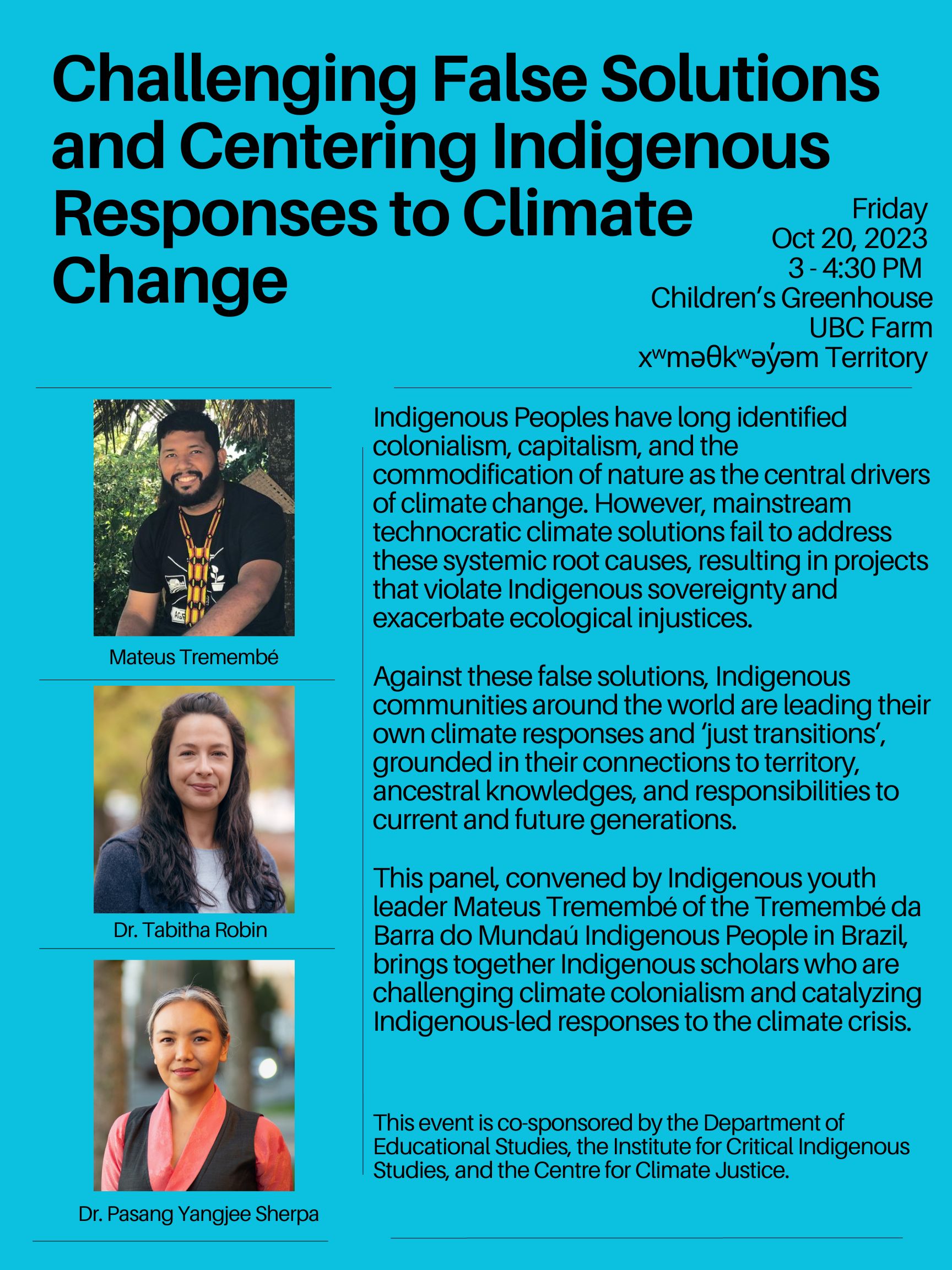Challenging False Solutions and Centering Indigenous Responses to the Climate Crisis
Friday, October 20, 2023, 3-4:30 PM
Children’s Greenhouse, UBC Farm
Abstract
Indigenous Peoples have long identified colonialism, capitalism, and the commodification of nature as the central drivers of climate change. However, mainstream technocratic climate solutions fail to address these systemic root causes, often resulting in projects that violate Indigenous sovereignty and exacerbate ecological injustices. Against these false solutions, Indigenous communities around the world are leading their own climate responses and ‘just transitions’, grounded in their connections to territory, ancestral knowledges, and responsibilities to current and future generations. This panel, convened by Indigenous youth leader Mateus Tremembé, brings together Indigenous scholars who are challenging climate colonialism and catalyzing Indigenous-led responses to the climate crisis.
This event is co-sponsored by the Department of Educational Studies, the Institute for Critical Indigenous Studies, and the Centre for Climate Justice. It is part of a three-part seminar series organized by Mateus Tremembé focused on Indigenous Just Transitions, with other events happening at Trent University and the University of International Integration of Afro-Brazilian Lusofonia (UNILAB) in Brazil.
Speakers
Mateus Tremembé is a youth leader of the Tremembé da Barra do Mundaú Indigenous People, located in the municipality of Itapipoca, Ceará, Brazil. Mateus is a community organizer, agroecological farmer, food security and Indigenous food culture researcher, agronomy student at UNILAB, and Mitacs Accelerate intern in the Department of Educational Studies at UBC. He is currently leading research projects about just transitions in food systems and climate education in his community
Tabitha Robin, Ph.D. is a mixed ancestry Metis and Cree researcher, educator, and writer. She is an Assistant Professor in the Faculty of Land and Food Systems at the University of British Columbia. She spends much of her time learning about traditional Cree food practices.
Pasang Yangjee Sherpa, Ph.D. is a Sherpa anthropologist from Pharak, northeast Nepal. She is an Assistant Professor of Lifeways in Indigenous Asia at the University of British Columbia. Her research topics include Indigeneity, human dimensions of climate change and the Sherpa diaspora. She uses ethnographic methods to study everyday concerns of Himalayan people in order to normalize their experiences and represent them as equal partners in decision-making spaces.
RSVP
